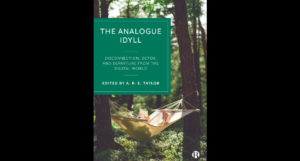Shared community spaces key to tackling issues caused by Cornish gentrification, study says

A research team are putting together a new ‘seaweed eating archive’ for Cornwall
Creating and fostering ‘shared spaces’ can help to tackle the problems caused by gentrification and changing communities in Cornwall, a new study says.
The challenge for politicians in the Duchy is to make sure evolution caused by newcomers moving from urban to rural areas benefits all, not just those with power and choices.
Currently this “counter urbanisation” in Cornwall is benefitting the place, but not local people, according to the research. Dr Joanie Willett, from the University of Exeter, worked with residents of a village – being kept anonymous – which is a former fishing and farming community, highly popular with summer visitors and inward migrants. The village had a strong community, with a gig club, parish council, cricket club, and school.
Dr Willett, together with a local artist, ran a day-long community story-gathering event in the village, which has a population of 1,700, in late 2019. The 12 people who took part were aged between their early 30s and their early 60s. Dr Willett also conducted further interviews with village residents.
She found housing pressures risk dispersing the local institutions, clubs, services, and community action which help to keep the community alive and as a living space. Recent graduates find return migration difficult, and it is unclear how many other potential return migrants are also unable to move, because of the costs of living in Cornwall.
Dr Willett said: “Shared community spaces where different groups can coalesce, build relationships, share knowledge and use that for community action are important for finding ways to adapt to a future that works for all. However community vibrancy also is a double-edged sword as often individuals find it impossible to remain in the place in which they have dense and supportive networks, and jobs tend to become increasingly low-paid and insecure.”
The more industrial past of the village was invisible to outside observers and newer members of the community who knew the area for beautiful beaches and lovely coastal walks which make it into a popular tourist destination. Because of housing unaffordability local people had become structurally displaced from tourism economies and coastal areas, especially after the covid pandemic.
Dr Willett said: “The shift in landscape use from one that considers the environment to be a place in which to consume an amenity, rather than produce things, leads to clashes about what the community is for. Rather than initiating an improvement to local economies and the lives of local people, it results in multiple displacements due to housing pressures.“
Although some people knew of the more innovative and highly skilled industries in Cornwall, many felt disempowered by the belief that the visitor economy was all that there was moving forward into the future. The area will continue to evolve, but the challenge is to make sure that this is in ways in which it can remain as a liveable community and for this, sharing the different Cornwall is important.“
“Counter urbanisation is not always positive for rural economies. Immigrants do not necessarily have ways to share their social and economic knowledges with local people and this can contribute to fragmented, rather than cohesive communities. Gentrification which can go in tandem with counter urbanisation, can make it harder for local people to live in the places in which they come from. Further, poor infrastructure rather than a lack of knowledge and skills, can inhibit locals from deploying their own skill-sets.”



